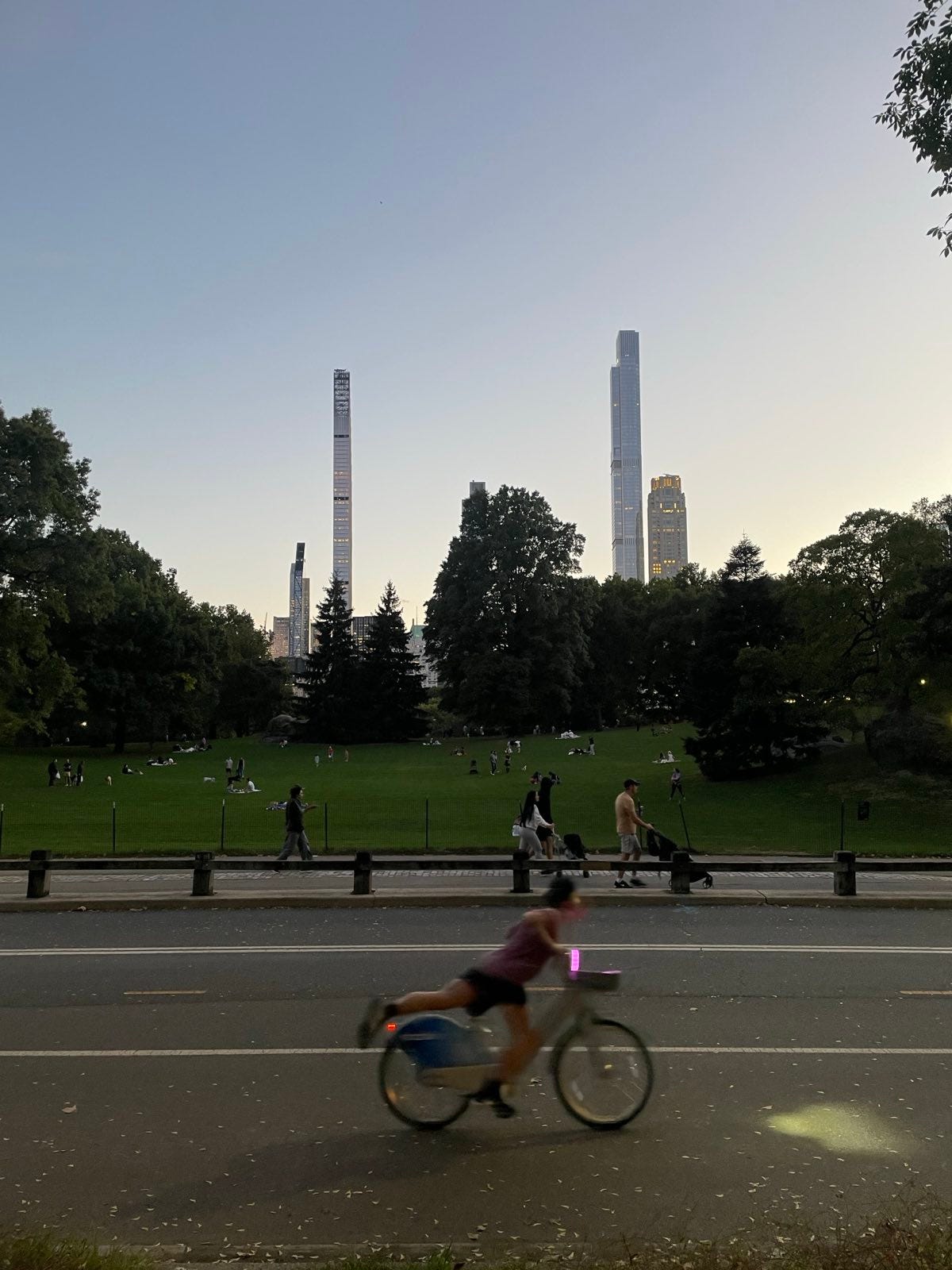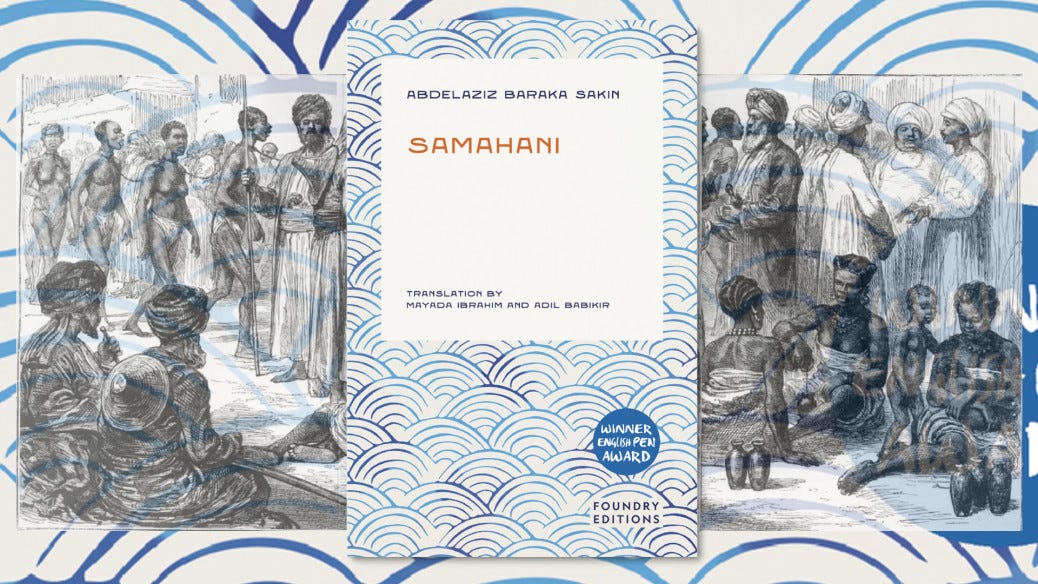‘Can I ask you a question?’
A new friend and I were walking back to the subway station from a comedy show, which like most variety performances, was a mixed bag. Our hang out had been an important one in our journey transforming from acquaintances to friends. It was that type of hang out like resembled a third date, where you get into the good stuff, the more intimate parts of who you each are, where you begin to build the bonds of a longer lasting connection. I meet so many gorgeous folks in my life and travels, but without this vital ‘friendship step’ - the hangout without an end time, that spans meals, spooling out and stretching beyond its scheduled slot - the potential of the friendship languishes, wilts on the vine. Yes, it can be resuscitated, but often you have to begin again, replant the seed entirely.
Anyway. This new friend and I were wrapping up our hang out, nearing my subway stop, discussing our various creative endeavours. We had been asking each other questions throughout, so the fact she had paused to query whether she could pose her next inquiry intrigued me. Where were we going with this?
‘Do you care about what other people think about you?’
My involuntary response was to let out a laugh. I don’t know if I actually did, either way it would not have been a reaction of derision, or mockery. It was more… huh!
It’s been a while since I’d thought about the opinions of others in this specific way, and that surprised me.
Circuitously, I arrived at my answer. Yes, there were some people whose opinions I nominally care about. People who I am in community with, in family with, people whose opinions on my actions and my politics I would take into deep consideration if they were to pull me up, or to chastise me in some way. But as I spoke, the truth revealed itself in a way that it hadn’t before, the first bloom of a new sapling, fresh and gleaming in the moonlight.
‘At the end of the day,’ I said, as we loitered outside the subway entrance, our conversation not yet over. ‘I suppose, not really? It’s only me and Allah…’ I paused. It didn’t feel like the full answer. ‘And…I guess, I can’t control how others think about me, so I try not to spend too much time thinking about it.’
Still, not quite. Close, but no cigar.
While it is true that Allah’s opinion - judgement - is all that matters, I do not know with any certainty what that looks like. I will not know the answer to that question in this lifetime. All I have is striving towards what I think - hope - will please Allah, and I wonder how much that aligns with what pleases me.
It struck me that all my musings and frustrations about my relationship to my art was not, in fact, about what others thought of me. It wasn’t really about the story I told at dinner parties, or the difficulty I had articulating my career to strangers. It wasn’t even about what Allah might think of this path, because it feels clear that Allah wants me here - no matter how hard I tried to stay away from the creative, I kept finding myself drawn back. No, this was about the story I told myself. I hadn’t made this writing career legible to myself - the one person I could control, and that was driving me up the wall. But I had control - no, I had agency - over this story. I could shape the story I told myself about why I was doing what I was doing, and why it mattered. I just needed to arrive at the version that felt true.
But then, the voice of another voice ofrères an alternative.
‘What if we just let it be?’
This was at another coffee, in another part of town. A friend whose early life mirrored my own, who today modeled an ease with themselves that I found delightful, if not confounding. How, in the face of this world, had they found such ease?
Perhaps we need to think about ourselves a little less… those were not their words, but that was the sentiment I received. A provocation, an invitation, to not be so wrapped up. Was I doing too much, immersed in my self, my nafs, my ego? Was that why I was obsessed with making myself legible?
Had my friend found ease, or simply become it? Chosen it? Allowed it?
There is control, and there is agency. There is trying to determine and define the outcome, and there is the power of choice. I have learnt how to step away from the burning desire to control, but maybe in that I also somehow gave up a sense of agency in this creative path, one that I actually do need. For even the choice to ‘just be’ is imbued with agency.
What does this all mean for me and the story I tell myself? I’m not sure yet, but I feel excited to find out. Inshallah…
Watch: The interview with Jon Stewart
‘My friend. You are grappling.’ So begins the conversation between Ta-Nehisi Coates and Jon Stewart on this episode of The Daily Show. I’ve had a lot of Coates this week, even having the pleasure of seeing him live in conversation at the storied Apollo Theater in Harlem on Tuesday. The below conversation with Stewart was perhaps more illuminating than the one on Tuesday, which seemed to me somewhat tentative, where Coates repeated much of his messaging from previous media appearances. My conclusion from the past week watching the discussion, amidst escalation of violence in the region, is that Coates’ intervention is important not necessarily because of the content of his speech, but the context. He is a man people will listen to, of the establishment, with epistemic authority. He is saying what he is about Palestine in the heart of the Empire, in the one place outside Israel that has any real chance of moving the needle. That matters - but, I thought as I watched him on stage - right now, he isn’t speaking to me.
Read: Losing My Temper
It’s rare I read a piece that names a feeling I am intimately familiar with but hasn’t been discussed and written about ad nauseam. This substack piece, by the gorgeous and talented Charlie Brinkhurt-Cuff, explores anger - righteous anger, shameful anger, and what to do with one’s temper when it flares. Charlie asks a question that I’ve often thought of myself: is the person I am in those moments of incandescent fury who I really am, or is it an aberration? I’ve been told this book - Eloquent Rage - looks into this rigorously, but I haven’t had a chance to read it yet. What I do know is that the spaces where my anger is allowed to reign free, not in those corporate ‘axe throwing’ and ‘plate smashing’ venues but in the hyper masculine worlds of the rigs, the boxing ring, even the average Sudanese political conversation, those forums seem to offer something I’ve not found elsewhere - full fat feelings, without consequences. But I can’t decide if that’s good or bad, desirable, or something to reform… what do you think?
ICYMI: This week, I published a feature on Sudanese author Abdelaziz Baraka Sakin’s latest novel, Samahani. Recently translated into English, Samahani — translated by Mayada Ibrahim and Adil Babikir — explores race, class, freedom, history, and sexuality with dark, ironic humour. Check the feature out here!
Listen: Alemeda
Something a little different to finish off this week’s newsletter: a new artist! Alemeda is a Sudanese-Ethiopian indie singer-songwriter raised in Arizona, USA. This is pop, delightful and angsty. It reminds me of the early 2000s, and I’ve been reveling in the nostalgia. Enjoy!
That’s all for today, folks! Thanks as always for reading, for sharing, for your comments and your feedback. I appreciate every single one of you.
May Allah cover us in blessings and protect us all, always, inshallah.
Best,
Yassmin








